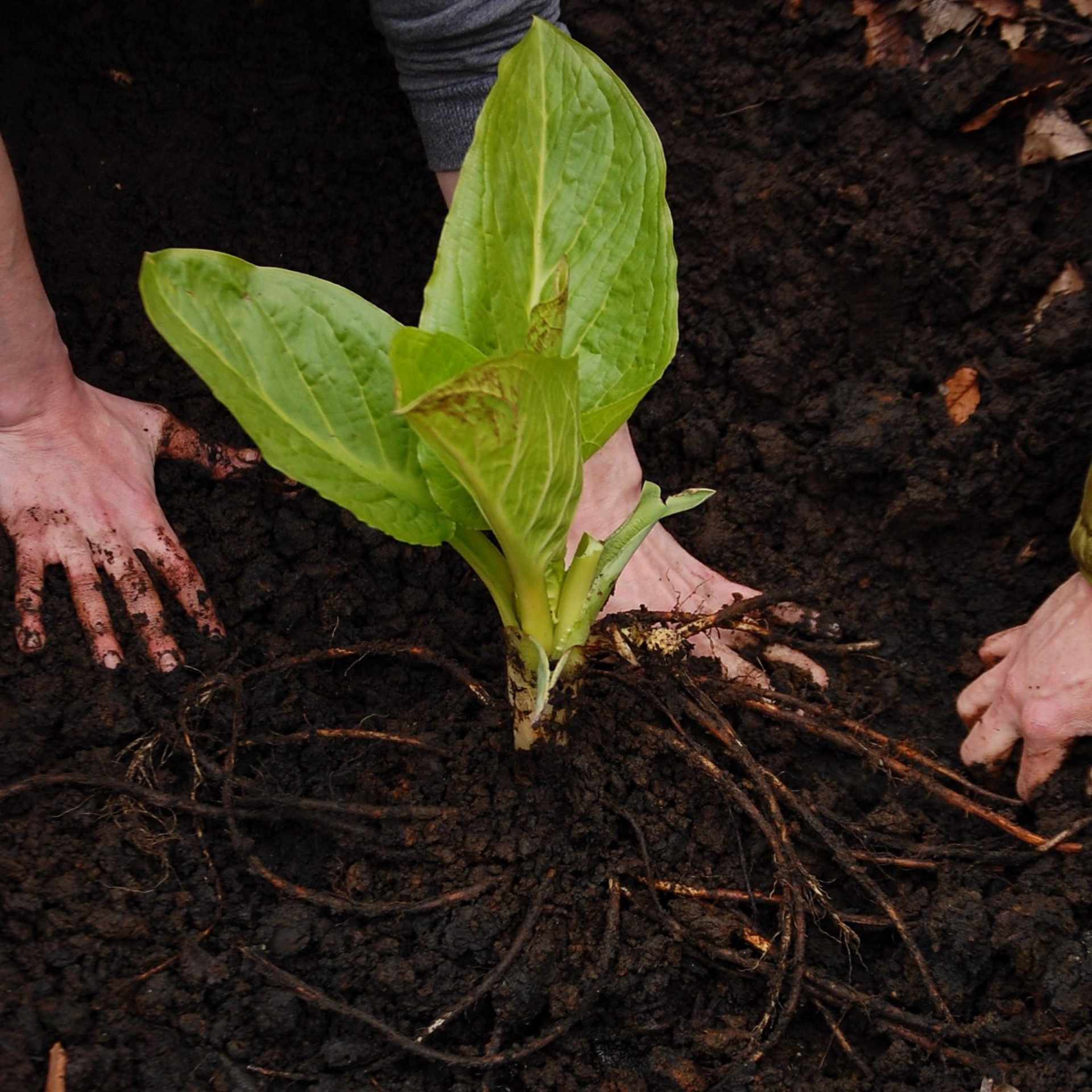Nature's Antidote to Anxiety
What you didn’t know, and ought to, about Eastern Skunk Cabbage
The Author in his natural habitat! Photo Credit: Corrine Denomme
“It smells so good, I want to eat it!”
I didn't know it yet by name…
Though I was an utterly inexperienced forager at the time, I resisted the temptation. I would have instantly regretted consuming the leaves of Eastern Skunk Cabbage, symplocarpus foetidus. One of my earliest adventures through the swamps of SouthEastern Michigan — to learn about the wild world of plants — introduced me to a species I would remain mysteriously drawn to for years to come.
If you’re not already aware, its leaves and roots contain calcium oxalate crystals that cause extreme irritation to the mouth when chewed. Even after learning I had wisely avoided this extremely unpleasant experience, I still had a sense that this plant had something important to offer.
Years later, when I came to learn its association with “Bear Medicine,” a series of serendipitous events would find me kneeling down in a swamp and up to my elbows in iron rich, alluvial soil. My companions and I, working patiently to free its deeply embedded, contractile roots from Earth.
This prehistoric perennial lives for several decades, each year growing deeper, not taller. It consumes oxygen at the rate of an equivalently sized animal and can raise its internal temperature to nearly 60°F, flowering through ice and snow in the earliest of spring. This plant knows resiliency, and teaches it too.
In fact, it may just be nature’s antidote to anxiety. Eastern Skunk Cabbage is ubiquitous to much of the Midwest. Nearly impossible to enjoy as an edible, most of its herbal indications surpassed by more popular and easier to access species, this unrivaled antidote to anxiety remains hidden in plain sight. Quietly and patiently doing its work, humbly willing to offer its medicine to those who approach it with honor and respect. Known widely by pre-pharmaceutical physicians for its utility in alleviating nervous irritability.
Photo Credit: Corinne Denomme
“By most persons it is accused of being mildly narcotic; but many experienced and careful physicians assure me that it is in no sense narcotic, but a simple and reliable nervine, of the most innocent and effective soothing character.” - William Cook, M.D., 1869
Known similarly by the indigenous cultures that inhabited its range, its root used for heart medicine, asthma, and a talisman against the return of disease. Those properly initiated can call upon Skunk Cabbage for strength of heart, and power of breath. And, while I won’t tell you what to do with this plant, I encourage you to exercise caution, do your own research, take responsibility for your own actions as the intelligent and capable adult that you are.
However, I will say this: a tincture of the dried or fresh roots renders the calcium oxalates innocuous. And, 5-10 drops, in my own personal experience, yields profound and immediate results.
As long as you know how to listen, I imagine you’ll be granted a similar experience.
I have known Kevin for years and although we live in different regions of Michigan we often engage in great conversations regarding what is “natural” to the human being. Kevin specializes in much of that work and I thoroughly enjoy his insights on life. If you enjoyed this Blog and you would like to read any more of Kevin’s amazing content go to kevinhood.me You will not be disappointed!

